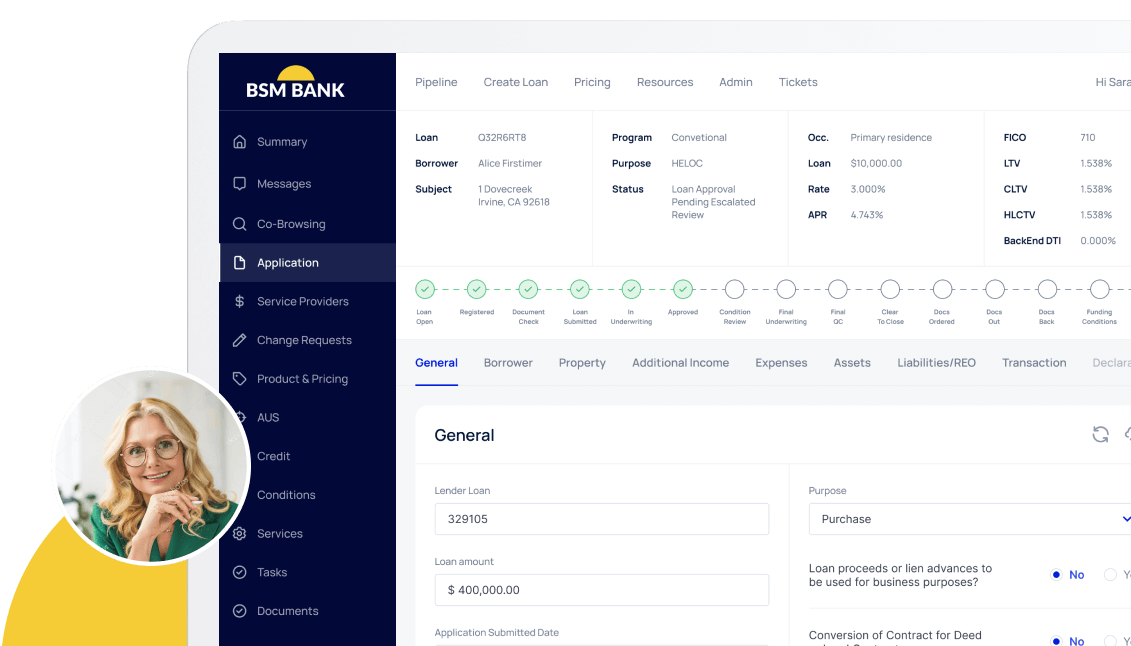Appraisals have long been a frustrating part of the mortgage industry. An appraiser must go to a potential customer’s house and personally inspect it before giving the thumbs-up for a refinance or a purchase mortgage.
With appraisal automation, your company can avoid spending the time and money to contract an appraiser and then wait for their report on the customer’s house. As you probably know, each appraisal is costly, ranging from between four and six hundred dollars!
BeSmartee presents an in-depth look at the ways that appraisal automation can facilitate your loan offerings and enhance the quality of your loans.
What is an Automated Appraisal?
As the name implies, an automated appraisal is the work of artificial intelligence that compiles the data on home sales and other sources of information to evaluate the customer’s home accurately.
The best part? It can happen in a few seconds. That saves a huge amount of time and money by cutting the appraiser out of the equation altogether. However, appraisers will still be necessary for more complicated properties or ones that aren’t easily evaluated.
Homes in areas that haven’t seen many sales recently or where information is sparse might not have enough data for an automated appraisal, in which case you’ll still need an appraiser. But, even if you can only use an automated appraiser in certain situations, it is still a net win.
Automated Valuation Models
Part of what goes into an automated appraisal is the use of automated valuation model technology or AVM. You’ve likely experienced AVMs through Zillow’s Zestimate software that generates an evaluation of a property based on neighborhood sales.
The software aggregates the information about recently sold houses in the neighborhood, their typical square footage and number of bedrooms, and then feeds that information into an algorithm based on specific rules. What comes out is a calculation of the property’s value. Some AVMs have expanded their use to commercial properties in addition to residential properties.
Keep in mind that since this method relies on available information about other properties in the neighborhood that were recently bought or sold, some properties with unique renovations or in unusual areas may not provide accurate data for an AVM to work properly.

Benefits of Automated Appraisals
Using automated systems in the mortgage business is practically a necessity in this fast-paced world of the future. By now, their benefits of improving efficiency, closing more loans, and enhancing the customer experience have come to be expected, and you’ll find your business hard-pressed to edge out the competition if you’re stuck in the paper-based dark ages.
Better Customer Service
You know that your clientele has options besides your company, so you have to “WOW” them from the get-go. By utilizing advanced tools, you can appeal to their faith in technology and the knowledge that you aren’t still doing things the same way as every other company.
No customer wants to hear that their closing date is months away because you have to wait for an appraiser to go out and inspect their property way off in the distant future. Remember, the key is that this isn’t your grandma’s mortgage company.
Scalability
When part of your workflow requires manual work, it can slow down the loan process and create a bottleneck as your company expands. While you may not have seen an issue when your company was handling a smaller number of clients, as your clients increase, your workload will increase too.
Let’s face it: there are only so many manual appraisals that can be completed in a single day. With more customers requiring those appraisals, you’ll likely have to push closing dates farther out into the future to give your appraisers the time they need to complete and file their reports.
With automated appraisals, you can decrease the amount of time needed for appraisals and iron out the process until it runs smoothly for both your loan officers and your customers.
Enhanced Compliance
Between the federal and local regulations and your company policies, it can be difficult to review appraisals and check to make sure all of those rules have been followed. Is every necessary piece of information included in the report? Were certain aspects of the property taken into consideration? How did the appraiser reach their evaluation?
All of these questions can lead to friction between the appraiser and the mortgage company, which creates trouble and more time when asking for revisions and clarifications is necessary. From the customer’s perspective, that might go unnoticed, but it essentially adds up for your business.
Subscribe to BeSmartee 's Digital Mortgage Blog to receive:
- Mortgage Industry Insights
- Security & Compliance Updates
- Q&A's Featuring Mortgage & Technology Experts
With automated appraisals, you won’t have to triple-check every single form for compliance. You set the rules for the system and go from there. The software will automatically ensure that it is performing according to all of the regulations and update with new regulations if and when they come to pass.

When Does Appraisal Automation Make Sense?
For properties that are located in a mostly uniform area or in neighborhoods that have recently seen a lot of turn-over, appraisal automation makes sense. Clients with good credit who live in so-called “cookie-cutter” neighborhoods are ideal candidates for automatic appraisals.
On the other hand, automated appraisals don’t take home improvements into consideration. Suppose a client is looking to refinance their house and they have invested a significant amount of money into it. In that case, they may not agree with the evaluation of an AVM that can’t take those improvements into account.
Similarly, some types of industrial properties, clients who aren’t looking for refinances, customers with less-than-ideal credit scores, and people who live in areas without much real estate data are not good candidates for appraisal automation.
If you think that your clients mostly fall into the former category, then this is one type of effective automation that your company should be looking into.
Companies with Automated Appraisal
By now, you’ve likely started thinking that appraisal automation sounds like a pretty good idea, right? Well, you’re not alone. Plenty of companies have started offering these high-tech services to enhance appraisals by automating some or all of the process. Below, we’ve collected just a few who are on the cutting-edge of this new technology.
CoreLogic
CoreLogic has started offering a service that allows companies to make use of automated appraisal reviews. It generates a checklist based on your company’s specific rules and regulations for each appraisal and evaluates all of the data submitted in the appraisal to ensure that all of the boxes have been checked.
CoreLogic’s software uses those rules to review appraisals and perform quality-control to reduce errors and enhance the appraisal process. That also reduces the number of requests for revisions and facilitates better cooperation between all parties involved.
Fannie Mae
Fannie Mae has begun offering a waiver for qualified customers, so they don’t have to wade through the inconvenience of an appraisal. The qualifications are numerous and only apply to some people who apply for refinancing, but they recently reported that approximately 25% of their applicants are eligible for that waiver.
The waiver essentially means that a certified appraiser does not need to manually inspect your property; instead, they will automatically calculate the value.
Freddie Mac
Following in Fannie Mae’s footsteps, Freddie Mac released new offerings to mortgage companies which included automated appraisals. Their software relies on information generated by their own company instead of only using current data from the property’s neighborhood.
In this way, Freddie Mac’s software has more data to draw on, even for properties that might be challenging to appraise. Their company has been collecting data for decades, and those historical prices can increase the accuracy of the evaluation.

Will This Trend Replace Traditional Appraisers?
Maybe far into the future, but for now, manual appraisers are still very necessary for the lending process. The information aggregated by automated appraisals relies heavily on previous traditional appraisals that have been conducted on nearby or similar properties in the recent past.
Without that crucial information, automated appraisals don’t have enough data to calculate an evaluation. Considering how many properties are unusual enough or are located in areas with insufficient data, traditional appraisers need not worry that their jobs will become obsolete any time soon.
Roundup
As the technology progresses, more and more mortgage companies will likely turn to automated appraisals like some of the nation’s leading lending giants have. Any kind of automation will show immediate benefits for streamlining your workflows. Even if automated appraisals aren’t right for every property, many customers will benefit from reduced loan cycle time, thus making it worth your while.
Learn how lenders use BeSmartee’s mortgage automation tools to improve the workflow process for appraisals. Call us at (888) 276-1579 or reach out to our mortgage technology experts at sales@besmartee.com today.




